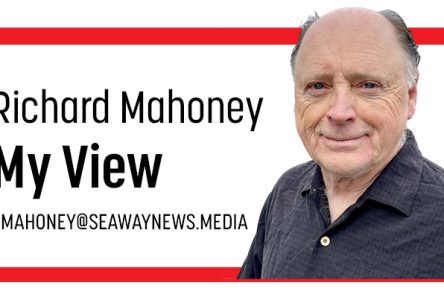Dear Editor,
Studies were made on Canadians resulting in a fun-to-read book called 101 Things Canadians Should Know About Canada.
Results show conclusively that all Canadians—whether in general, Quebecers, educators, old or young, male or female, and even immigrants—agree on what Canadians feel is important for Canadians to know about Canada.
Consistently in the top 10 choices are 1. maple leaf; 2. hockey; 3. peacekeeping; 4. Pierre E. Trudeau; 5. the Canadian flag; 6. the beaver; 7. the Canadarm; 8. health care; 9. Niagara Falls; 10. Canada Day.
Top 20 material usually, no matter which category of Canadians surveyed, included 11. Rocky Mountains; 12. CN Tower; 13. RCMP; 14. Wayne Gretzky; 15. Ottawa; 16. Parliament buildings; 17. Quebec City; 18. Banting and insulin; 19. multiculturalism/diversity; 20. Confederation.
Some of my favourites that did well were Terry Fox, Alexander Graham Bell, World Wars I and II, the Stanley Cup, Calgary Stampede, Sir John A Macdonald, Tommy Douglas, Pearson, Quebec Carnaval, Banff National Park, the St. Lawrence Seaway, Trans-Canada Highway and the Canada goose. Overlooked was Cirque du Soleil. However, something massive seemed to be missing. There was nary a mention about our aboriginals in all 101 honourably mentioned thoughts.
Our early immigrant society was tiny, fragile and poor for hundreds of years and even long after those immigrants ceased to think of themselves as immigrants.
Over the first 250 years, settlers attained little more than a partnership with the natives. While their numbers dropped drastically, it wasn’t from a sense of having conquered them. You’d be surprised to realize how robustly native populations have rebounded, there now being 1.2 million in Canada.
Truth be told, Canadians overwhelmingly agreed that aboriginal Canadians’ presence in our midst is of vital importance, and this was added on as the 102nd thing that we need to know about our great country.
Ideas that aboriginal leaders had long ago, which we wouldn’t listen to then, are becoming and have, in some cases, already become the essence of what we are and what we are proud of.
Raven Van Leishout, Cornwall


